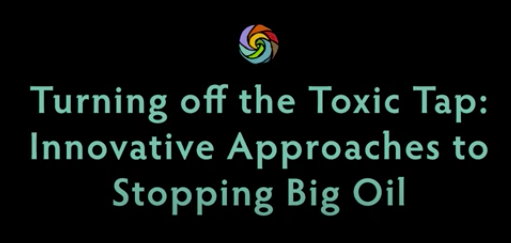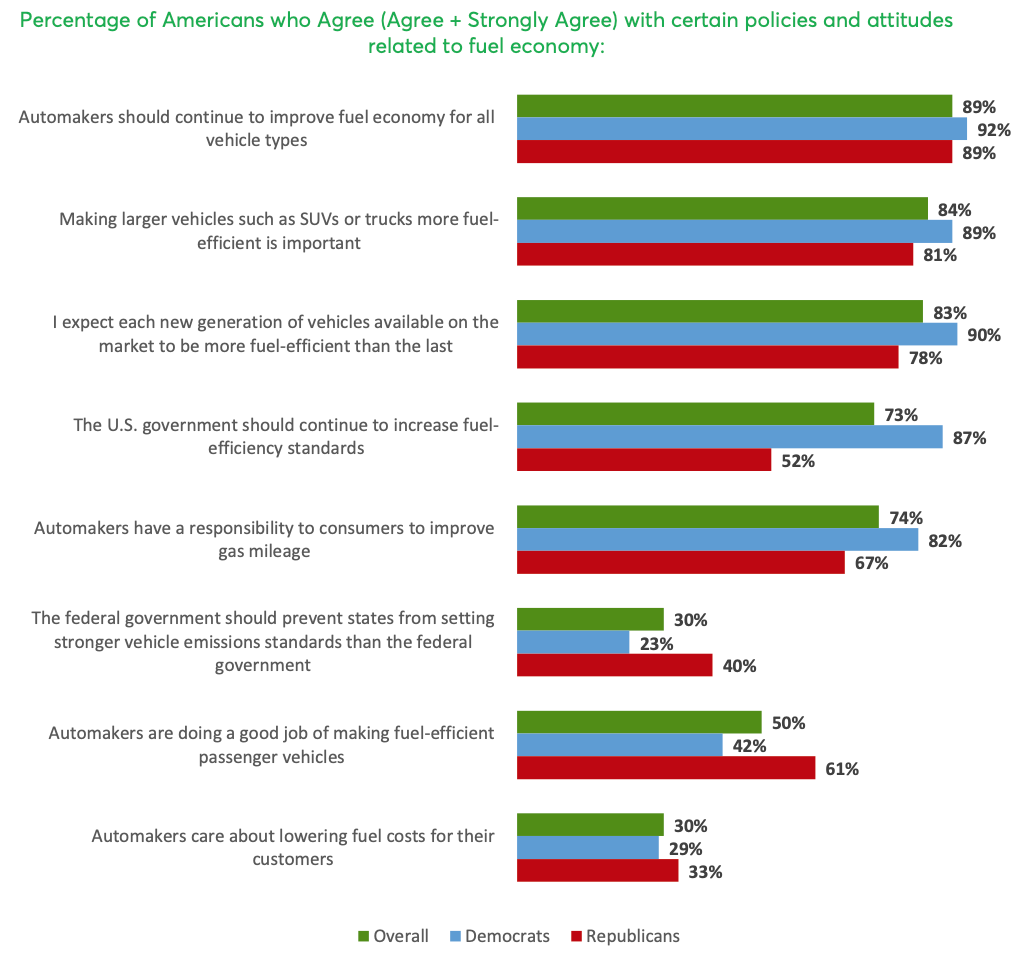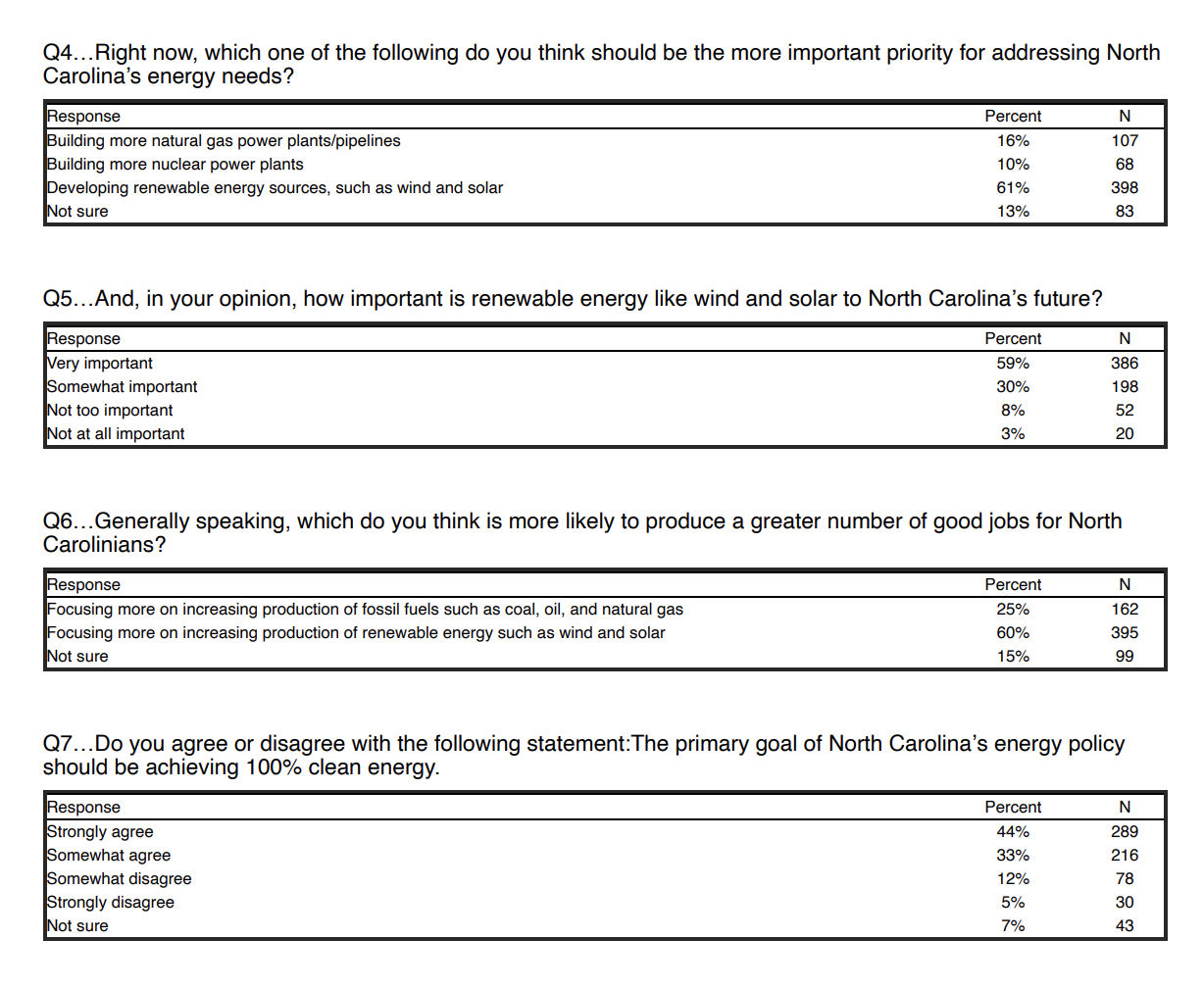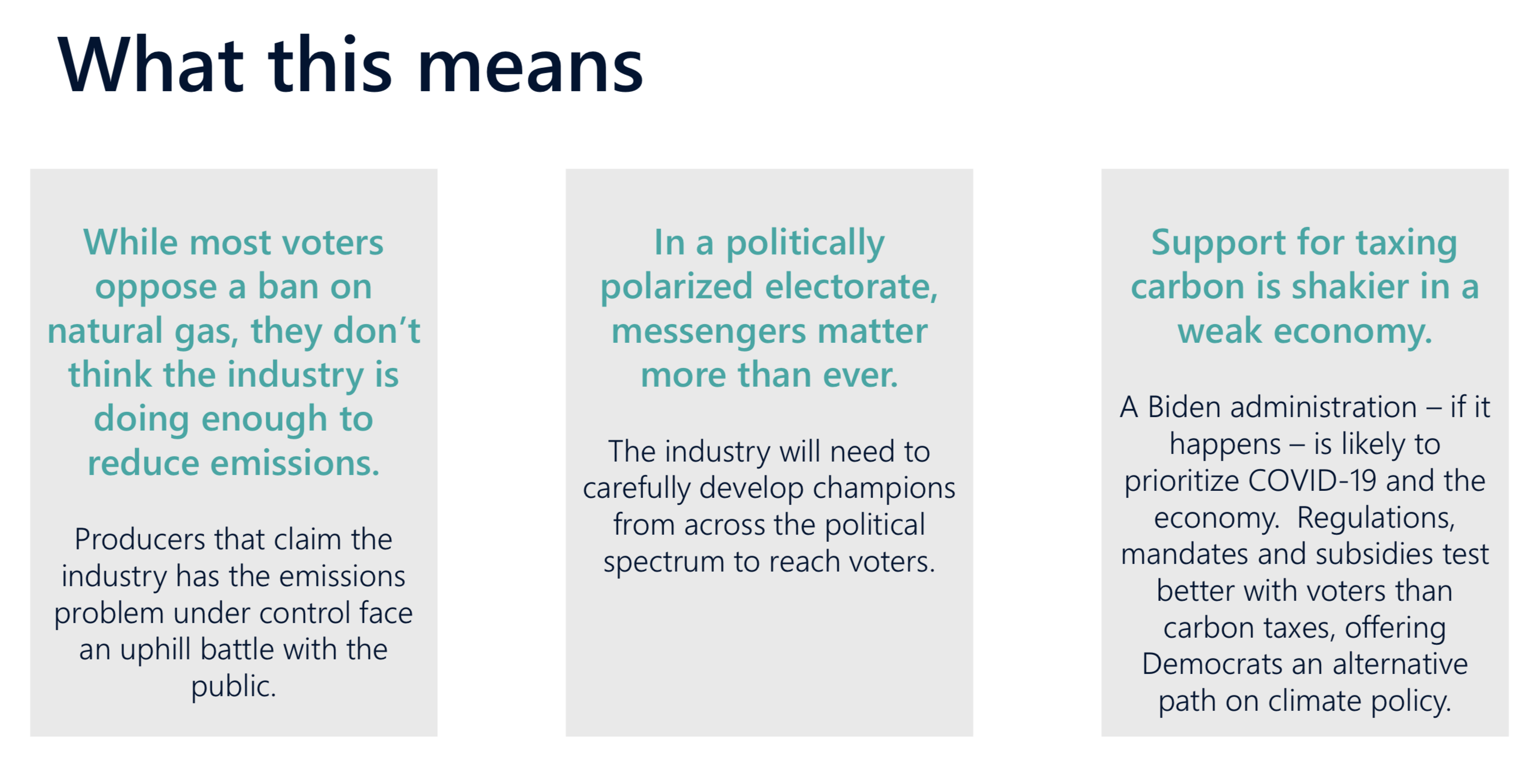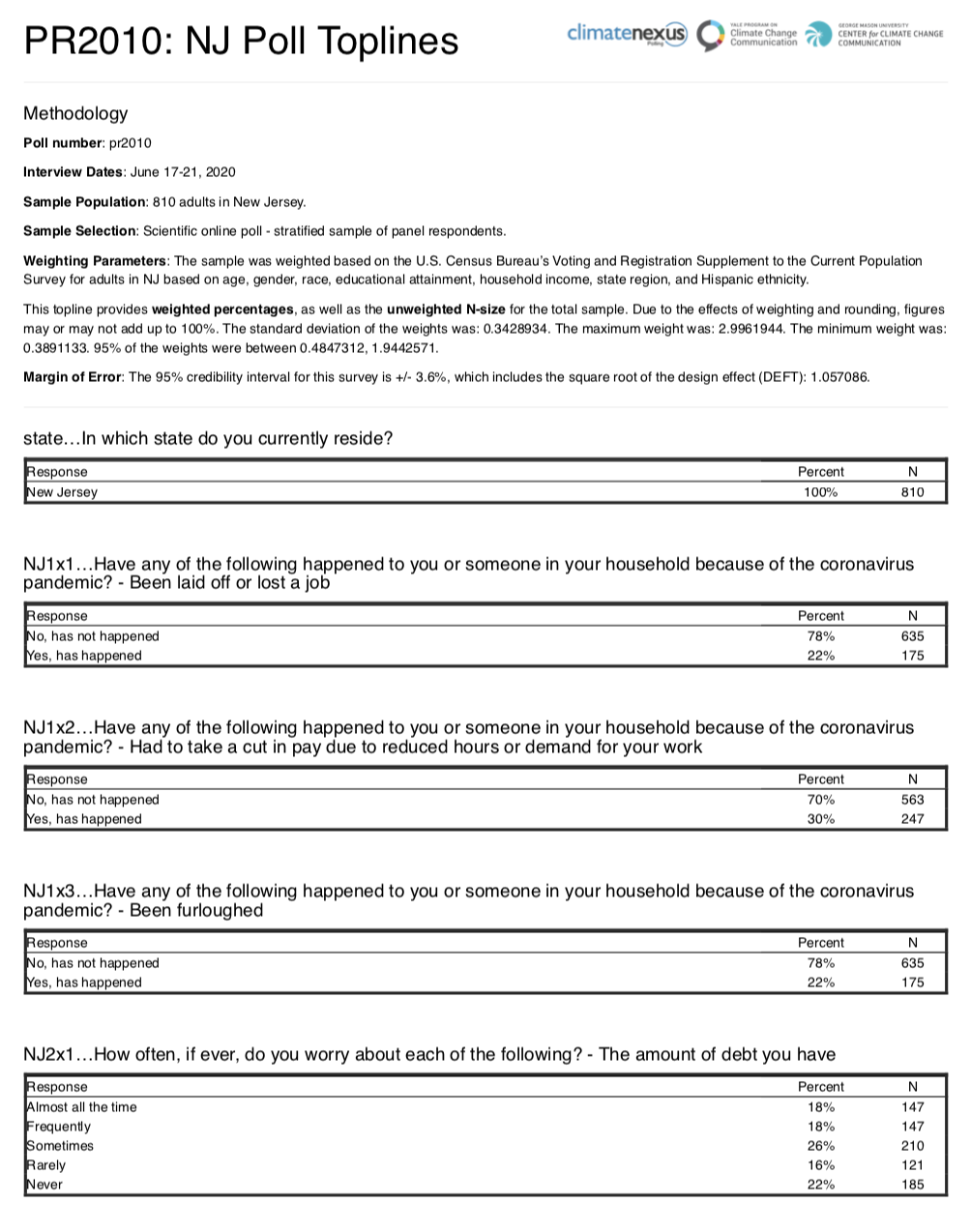Resources
Search below for resources covering the intersection of climate engagement, social science and data analytics.
RESULTS
Here are three astute strategies targeting the oil majors where it hurts—their bottom line and their social license to operate. The goal is an orderly wind-down of the fossil fuel industry within the next 20 years, while creating the political space for a clean energy economy’s rapid spinning-up. This panel is hosted by Rick Reed, Philanthropic Advisor, and includes Sarah Thomas, Senior Advisor to the Funder Collaborative on Oil and Gas and Rebekah Hinojosa, Sierra Club’s Gulf Coast Campaign Representative.
Poll: After Historic Outages, Texans Favor Solar, Wind and Other Clean Energy
Polling research shows that after historic power outages in February 2021, most Texans are in favor of the state producing more renewable energy and reducing their dependency on fossil fuels.
- About six in 10 Texas voters say that the state should add solar (65%) and wind (58%) energy resources. There was less support for natural gas (45%), nuclear (28%), and coal (20%).
- 30% of Texas voters strongly agree and 26% somewhat agree that the primary goal of Texas’ energy policy should be achieving 100% clean power.
- 45% of Texas voters strongly agree and 32% somewhat agree that being a leader in clean energy innovation is important to Texas’s future.
Poll: Voters Support Stimulus for Clean Energy, Climate
American voters strongly support clean energy infrastructure investments to kickstart the economic recovery, support action on climate change as part of stimulus recovery packages, and want their elected officials to support those policies as well.
As part of an economic stimulus package, a majority of voters support:
- Assisting states and regions recovering from recent extreme weather and climate disasters (79%);
- Reinforcing infrastructure to withstand the effects of climate change and extreme weather such as severe flooding and hurricanes (73%);
- Building new power lines to transport renewable energy (70%);
- Creating a jobs program for unemployed oil and gas workers to safely close abandoned oil and gas wells (69%);
- Expanding public transportation such as high-speed rail, subway and light rail systems, and electric buses (67%);
- Expanding tax credits and other incentives to expand renewable energy such as solar and wind (66%); and
- Building and expanding charging infrastructure for electric vehicles (59%).
Poll: Consumer Attitudes Towards Fuel Economy
A recent survey to better understand American attitudes towards fuel economy, particularly among prospective vehicle buyers (those who intend to purchase or lease a vehicle within the next two years) found:
- Room for improvement: Prospective buyers who currently have a vehicle most commonly selected fuel economy as one of the attributes of their vehicle that has the most room for improvement (42%); the next-highest selections were purchase price (25%) and maintenance costs (25%).
- Importance of fuel economy to vehicle selection: 64% of Americans who are planning to buy or lease a vehicle within the next two years say that fuel economy is ‘extremely important’ or ‘very important’ to them when considering what vehicle to get next. Only 6% say it is ‘not very important’ or ‘not important at all.’
- Key expectations for automakers: More than 7 in 10 Americans ‘agree’ or ‘strongly agree’ that:
- automakers should continue to improve fuel economy for all vehicle types;
- automakers have a responsibility to consumers to improve gas mileage; and
- each new generation of vehicles available on the market is expected to be more fuel-efficient than the last.
Poll: Most NC Voters Support Wind Energy
77% of North Carolinians think the primary goal of the state’s energy policy should be achieving 100% clean energy and a majority (33% strongly; 38% somewhat) support the development of offshore wind farms. 70% of voters polled also believe the buildout of offshore wind along North Carolina’s coast would have a positive impact on jobs, the state’s economy, air quality and climate change.
Fueling the Fire: Why Any Fossil Fuel Industry Bailout Will be Disastrous for Communities of Color
This report looks at the intersection of pollution from refining and burning fossil fuels, repiratory diseases caused or exacerbated by this pollution, the impacts of the COVID-19 pandemic, and race and racial inequality in the United States. It makes the case that the CARES Act constitutes a bailout of the dirty energy sector that spent more to prop-up the fossil fuel industry than it did on health care supplies and investments, even as this industry contributes to the adverse health outcomes from the COVID-19 pandemic in communities of color. The report's key findings also link large financial sector players like big banks, asset management companies, private equity and insurance companies to the chain of carbon and chemical emissions that have disproprotionately negative impacts on communities of color and low-income communities.
- Voters see a role for natural gas on climate—but with conditions. Almost half of U.S. registered voters believe the industry must do more to reduce emissions in order for natural gas to play a role in climate change.
- Most U.S. voters support giving states more power to block new oil and gas pipelines, but don’t think it will help in the climate fight. Despite supporting states’ and local government’s power to block pipelines, 59% believe that halting pipelines won’t have a significant impact on climate change.
- Environmental/safety commitments on pipelines are more important to voters than economic ones. When asked what actions companies could take that would make them more supportive of pipelines, voters in both parties were more likely to pick actions involving the environment’s safety than those involving jobs.
- Voters are less likely to see climate change as a crisis now than before the pandemic. Concerns about COVID-19 and the recent call to action on racial justice issues have eclipsed concerns over climate change when compared to 2019.
State energy profile
Poll: 76% of New Jerseyans Support Using Renewable Energy to Reduce Electric Bills for Low-Income Families
At least 7 in 10 New Jerseyans support each of the six key components of the Clean Energy Equity Act, a bill that aims to help low-income New Jersey families benefit from solar, storage and energy efficiency.
Pennsylvania statewide poll shows majorities of residents across parties support policies that protect clean air (81%) and support clean energy policies (63%).
Pagination
- Previous page
- Page 4
- Next page
